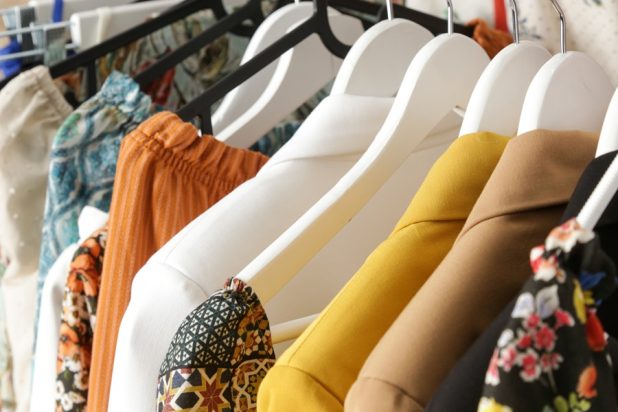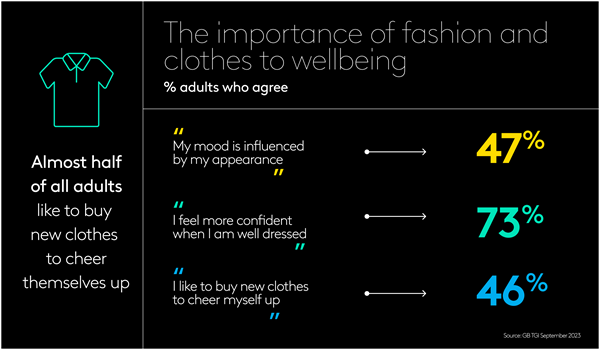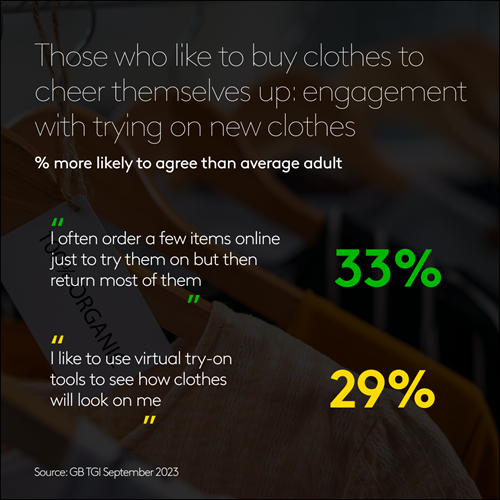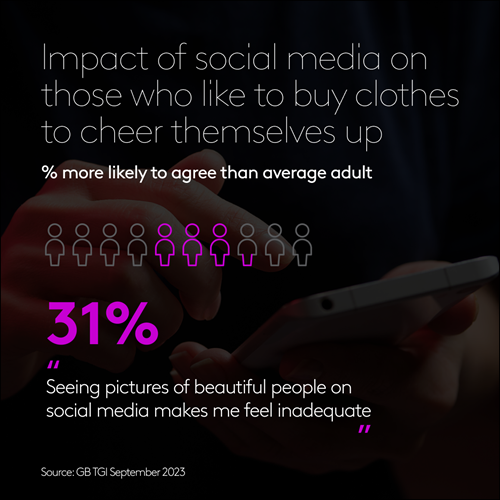Exploring the opportunities and challenges for brands in engaging consumers interested in fashion amid the cost-of-living crisis

With many fashion retailers feeling the squeeze from rising supplier charges, some have been looking for other areas where they can mitigate their costs. One way is through clamping down on customer returns, which can be an expensive headache for retailers to have to process.
Indeed, just this week it was reported that fashion giant H&M is starting to charge shoppers who return items bought online, joining fellow fashion retailers such as Zara, Boohoo and Next who already do this.
It is an issue that the cost of living crisis can exacerbate, as for many consumers trying new clothes and indulging their love of fashion is an important way of keeping their mood positive and retailers want to encourage their customers to fully engage with their clothes ranges.
Latest monthly GB TGI data for September shows that a considerable proportion of adults say they like to buy new clothes to cheer themselves up and that they feel more confident when they are well dressed.

However, 27% of adults (14 million people) confess to often ordering a few items online just to try them on but then return most of them. This figure rises to 35% among those who say they like to buy new clothes to cheer themselves up.
Whilst charging for returns is an option increasingly being adopted by retailers, unsurprisingly it is broadly unpopular with consumers, with 59% claiming they would be less likely to shop somewhere which has delivery/return charges.
However, increasingly there are other options that can help consumers to avoid needing to return clothes, such as virtual try on tools, which are particularly engaged with by those who like to buy new clothes to cheer themselves up.

Another challenge for consumers who like to try new clothes to feel good is one that has been around for a while: social media and its impact in feeding consumer insecurities in how they look.
On the one hand consumers will often turn to social media for inspiration for new clothing and manufacturers and retailers will often promote their wares via influencers and ads on social channels for this reason.
But such activity should be tempered by an acknowledgement of how seeing perfect-looking people online can make many consumers feel bad about themselves.
Indeed, over 15 million people feel that seeing pictures of beautiful people on social media makes them feel inadequate, with those who like to buy new clothes to cheer themselves up considerably more likely to agree.
